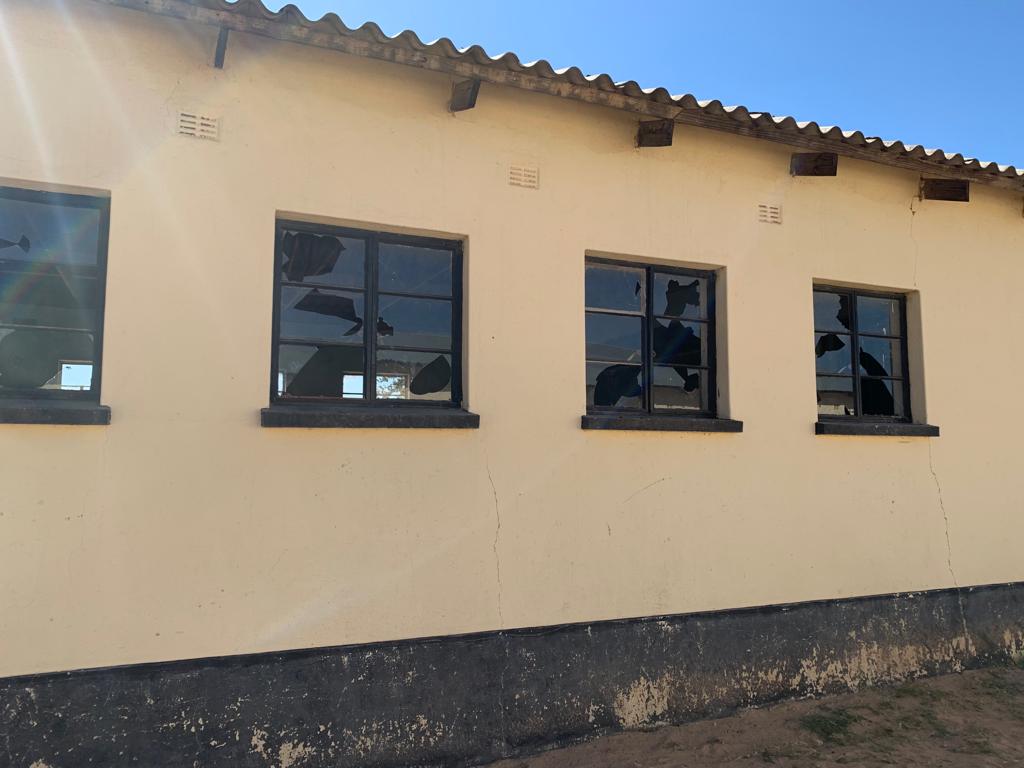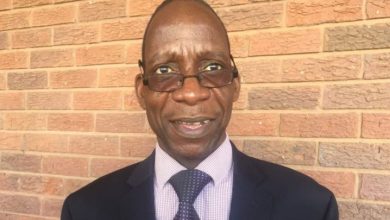Leaving no one behind but taking no one forward

By Bhekizulu B. Tshuma
As soon as you enter the gates of Sibona High School in Gwanda, Matabeleland South Province, you are greeted by the neglected and decaying state of this rural learning institution.
Most of the perimeter fence surrounding the schoolyard is carelessly lying on its back, rendering livestock from the area leisurely access to the premises.
And the amount of cow dung within the premises signals the extent of things falling apart.
By the time you move close to the scattered classroom blocks, you are left alarmed by the sight resembling a disserted war-torn infrastructure.

“This is one of our main schools in the district, but it is deteriorating at alarming levels. Just look at the window panes, they are all broken and most of the rooms here, have no doors.
“If you come here during the rainy season, you won’t believe it,” said Noel Khumalo, a Sibona villager, pointing to one of the classroom blocks with shattered window panes.
“We are living in fear that one of our best schools is going down in front of our eyes. In few years to come, there will be no Sibona to talk about if nothing is done.”
But is history repeating itself?
Khumalo drew parallels to the 2006-2008 economic meltdown that severely paralysed the education sector, forcing many teachers out of the country for greener pastures.
“There is no doubt that we are seeing the decline we witnessed some years ago. What is different now is that teachers learnt from history.
“Those who have opted to remain in the country are minding their businesses. What is happening in schools, is none of their business,” said Khumalo.
Amid the Government mantra of “leaving no one and no place behind”, Sibona High School is just one of the many learning institutions in rural Matabeleland region that are suffering many years of neglect and are in danger of total collapse.
Government will continue to make bold declarations that they are building this country brick by brick, but how can they seriously say that when the institutions that have earned us the number one literacy status on the continent are left to crumble?
It seems to be a case of stubbornness.
Since the 2017 coup that toppled the late President Mugabe, the current government has had so many opportunities to advance its claims, but they have done exactly the opposite.
Talking to villagers in rural Matabeleland, they located the blame at the doorsteps of both government and teachers.
They said the feud between teachers and the government is leading to the total neglect of schools’ infrastructure.
Lenard Moyo, another villager from Sibona, said there is a lack of care from school administrators possibly due to poor salaries they were receiving from their employer.
“In the past, we used to have a lot of meetings and interactions with teachers on maintenance and development. This is no longer happening.
“Of course, we have a school development committee, but I sense that teachers are disinterested. They no longer show the care we used to see in the past,” said Moyo.
Moyo also feels that both teachers and government should put the state of schools’ infrastructure at the heart of their developmental agenda.
However, teachers in schools around Matabeleland said it is unfair to blame them for the collapse of schools’ infrastructure but cited that the situation is prompted by lack of support from the Government.
“What you have seen is a true reflection of our state of education in the province. The decaying infrastructure just tells you how bad things have gone in this region and perhaps throughout the country.
“It is unfair to blame us (teachers). We have been neglected by our employer and the least we can to is to think of our survival,” said a teacher at the school.
Interacting with teachers, you also get a sense that the neglect on their part is tapping into the wells of deep discontent manifesting in economic failures by the Government.
Another teacher from the region who also preferred to remain unnamed said the extent to which the government is neglecting the education sector is staggering.
“The conditions are quite bad. We have to fetch firewood and water, there is a power challenge here and it has been like this for some time. To be honest, things are really bad for rural schools I hope something is done before it’s too late,” said the teacher.
Although the “new dispensation” continues to claim that it is building the country brick by brick, it is ironically neglecting the welfare of its workers and this has led to a silent and loud collapse of the education infrastructure in the country.
The big problem, and it will not go away, is that Government continues to bury its head in the sand hoping for the best outcome way after the dust settles.






